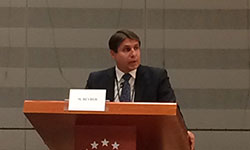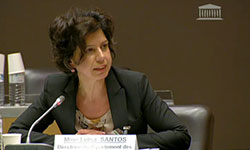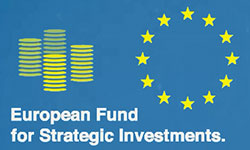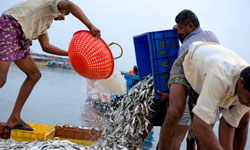BusinessEurope Headlines No. 2016-17
Innovation Principle should be embedded in EU policy-making
 "Alongside the precautionary principle, the EU needs to embed the Innovation Principle in European policy-making to boost innovation and assess the impact of legislation on innovation", BusinessEurope Director General Markus J. Beyrer said on 4 May at the Science and Technology Society Forum (STS) hosted by Paul Rübig MEP and the European Parliament Science and Technology Options Assessment (STOA) committee. In his speech he also remarked that "we are also looking at ways of making EU-Japan economic relations stronger and better adjusted to 21st-century challenges by concluding an ambitious free-trade agreement. Both Europe and Japan face strong competition from fast-growing economies that challenge our leadership when it comes to research and innovation." The STS Forum is a Japanese-chaired global organisation, aiming to resolve problems stemming from the application of science and technology.
"Alongside the precautionary principle, the EU needs to embed the Innovation Principle in European policy-making to boost innovation and assess the impact of legislation on innovation", BusinessEurope Director General Markus J. Beyrer said on 4 May at the Science and Technology Society Forum (STS) hosted by Paul Rübig MEP and the European Parliament Science and Technology Options Assessment (STOA) committee. In his speech he also remarked that "we are also looking at ways of making EU-Japan economic relations stronger and better adjusted to 21st-century challenges by concluding an ambitious free-trade agreement. Both Europe and Japan face strong competition from fast-growing economies that challenge our leadership when it comes to research and innovation." The STS Forum is a Japanese-chaired global organisation, aiming to resolve problems stemming from the application of science and technology.
Contact: Maurice Fermont
Talking about TTIP and environment at the French Parliament
 What can be expected from the sustainability chapter in the Transatlantic Trade and Investment Partnership – with a focus on environment – was the topic of a panel discussion at the French Parliament on 4 May. Our key messages: (a) TTIP main objective is to open new business opportunities for EU companies, especially SMEs; (b) the sustainability chapter proposed by the EU in TTIP is well more advanced and detailed than in any other of our trade agreements; (c) the main goal should be to have high-level rules in TTIP that can be later promoted at multilateral level as this area is currently not addressed by the WTO; (d) there are limits to what a trade agreement can achieve in implementing multilateral environmental agreements like COP21.
What can be expected from the sustainability chapter in the Transatlantic Trade and Investment Partnership – with a focus on environment – was the topic of a panel discussion at the French Parliament on 4 May. Our key messages: (a) TTIP main objective is to open new business opportunities for EU companies, especially SMEs; (b) the sustainability chapter proposed by the EU in TTIP is well more advanced and detailed than in any other of our trade agreements; (c) the main goal should be to have high-level rules in TTIP that can be later promoted at multilateral level as this area is currently not addressed by the WTO; (d) there are limits to what a trade agreement can achieve in implementing multilateral environmental agreements like COP21.
Contact: Luisa Santos
Markus J. Beyrer meets the EFSI steering board
 "The European Fund for Strategic Investment (EFSI) is an innovative instrument that brings about a new mentality in Europe for greater risk-taking and the use of EU funds in a logic of revolving financial instruments. It is now important that the EFSI, which is revealing a good start in terms of approved projects, ensures the quality and additionality of these projects, and substantially mobilises private investment", Markus J. Beyrer, Director General of BusinessEurope, said at a meeting with the EFSI steering board. There is also a clear need to communicate further on the EFSI in all member states, and to provide greater support to the countries having more difficulties in mobilising EFSI opportunities.
"The European Fund for Strategic Investment (EFSI) is an innovative instrument that brings about a new mentality in Europe for greater risk-taking and the use of EU funds in a logic of revolving financial instruments. It is now important that the EFSI, which is revealing a good start in terms of approved projects, ensures the quality and additionality of these projects, and substantially mobilises private investment", Markus J. Beyrer, Director General of BusinessEurope, said at a meeting with the EFSI steering board. There is also a clear need to communicate further on the EFSI in all member states, and to provide greater support to the countries having more difficulties in mobilising EFSI opportunities.
Contact: Joana Valente
Sustainable development: effective monitoring makes the difference
 It is often forgotten that the economic aspect is one of the three components of sustainable development together with the social and environmental aspects. Despite common belief, core trade provisions face implementation problems just like commitments in sustainability chapters. "Monitoring and reporting can make the difference", BusinessEurope Adviser Eleonora Catella said at the session "External policy coherence: effective implementation of trade and sustainable development provisions in trade agreements" organised by the Dutch Ministry of Foreign Affairs in collaboration with CNV, a Dutch labour union, during the conference "EU roadmap to business and human rights". Organised on 11 May in Amsterdam by the MVO platform (a network of Dutch civil society organisations and trade unions working together to promote corporate social responsibility), the conference discussed ways to advance implementation of the business and human rights agenda of the European Union. The questions of human rights and due diligence in the supply chain were also addressed by the conference. (Photo: Baiwir Fotografie)
It is often forgotten that the economic aspect is one of the three components of sustainable development together with the social and environmental aspects. Despite common belief, core trade provisions face implementation problems just like commitments in sustainability chapters. "Monitoring and reporting can make the difference", BusinessEurope Adviser Eleonora Catella said at the session "External policy coherence: effective implementation of trade and sustainable development provisions in trade agreements" organised by the Dutch Ministry of Foreign Affairs in collaboration with CNV, a Dutch labour union, during the conference "EU roadmap to business and human rights". Organised on 11 May in Amsterdam by the MVO platform (a network of Dutch civil society organisations and trade unions working together to promote corporate social responsibility), the conference discussed ways to advance implementation of the business and human rights agenda of the European Union. The questions of human rights and due diligence in the supply chain were also addressed by the conference. (Photo: Baiwir Fotografie)
Contact: Eleonora Catella
Quality of Europe's transport networks affects competitiveness of companies
 Ensuring sufficient investment in key infrastructure is fundamental for long-term sustainable growth and job creation. This is why strategic transport projects need to be financed through the European Fund for Strategic Investment (EFSI), while ensuring that transport funding through the "Connecting Europe" facility is also used to complete the trans-European transport networks (TEN-T). This was stressed by members of BusinessEurope's Transport Working Group in a discussion with a representative of the European Investment Bank on 11 May. Regarding the use of our infrastructure, members underlined that the cost and efficiency of transport services directly affect trade flows, mobility and competitiveness of European companies. Therefore, remaining regulatory, administrative and technical barriers in all modes of transport must be removed and the introduction of new restrictions - for instance to road transport - avoided. Another important element of making transport and logistics more efficient is deploying digital solutions and ICT tools. The European Commission (DG MOVE) should continue to play a leading role in promoting these solutions.
Ensuring sufficient investment in key infrastructure is fundamental for long-term sustainable growth and job creation. This is why strategic transport projects need to be financed through the European Fund for Strategic Investment (EFSI), while ensuring that transport funding through the "Connecting Europe" facility is also used to complete the trans-European transport networks (TEN-T). This was stressed by members of BusinessEurope's Transport Working Group in a discussion with a representative of the European Investment Bank on 11 May. Regarding the use of our infrastructure, members underlined that the cost and efficiency of transport services directly affect trade flows, mobility and competitiveness of European companies. Therefore, remaining regulatory, administrative and technical barriers in all modes of transport must be removed and the introduction of new restrictions - for instance to road transport - avoided. Another important element of making transport and logistics more efficient is deploying digital solutions and ICT tools. The European Commission (DG MOVE) should continue to play a leading role in promoting these solutions.
Read more or contact: Jeroen Hardenbol
Join it! CARBON EXPO 2016
 CARBON EXPO Trade and Conference provides a channel for all carbon market agents to get involved in understanding and influencing climate policy-making and its implementation. By interacting with experts around the world on the details of emission trading law and markets, you can acquire and exchange information, create new contacts or build on your existing networks. On 25-27 May in Cologne, Germany, CARBON EXPO offers everyone the opportunity to play a major role in addressing the defining issue of our times.
CARBON EXPO Trade and Conference provides a channel for all carbon market agents to get involved in understanding and influencing climate policy-making and its implementation. By interacting with experts around the world on the details of emission trading law and markets, you can acquire and exchange information, create new contacts or build on your existing networks. On 25-27 May in Cologne, Germany, CARBON EXPO offers everyone the opportunity to play a major role in addressing the defining issue of our times.
Read more or contact: Alexandre Affre
Calendar
 17-18 May 2016: 'Quantum Europe: a new era of technology', Amsterdam
17-18 May 2016: 'Quantum Europe: a new era of technology', Amsterdam- 18 May 2016: European Semester - Country-specific recommendations
- 19 May 2016: New financing solutions for companies – the Investment Plan for Europe, EIB conference, Katowice (Poland)
- 19-20 May 2016: BusinessEurope Council of Presidents meeting, The Hague
- 20-21 May 2016: European Youth Event 2016, European Parliament, Strasbourg